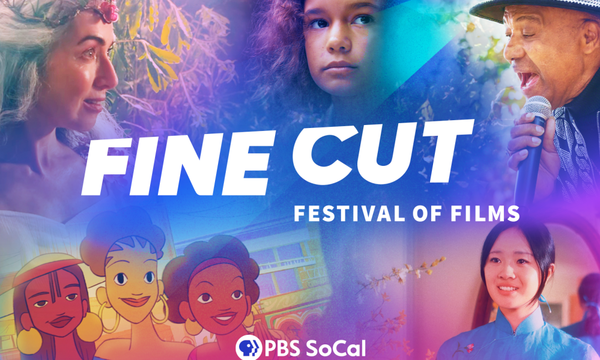I still remember the first time I booted up a major sports title after nearly a decade away from gaming—the excitement was palpable. Yet within weeks, that initial thrill had transformed into what I can only describe as playtime withdrawal. That peculiar emptiness when the game you loved starts feeling more like a second job than an escape. If you're nodding along right now, you're not alone. This phenomenon has become increasingly common in modern gaming, particularly in titles that blend social hubs with progression systems designed to keep you hooked while testing your patience.
The turning point came when I realized my gaming sessions had become less about enjoyment and more about grinding for Virtual Currency. I'd spend hours in that shared world environment, competing in events just to earn enough VC to improve my custom character. What struck me most was how the game deliberately matched free players like myself against those who'd clearly opened their wallets wide. The matchmaking system seemed almost engineered to create frustration—here I was with my gradually improving character, constantly facing opponents who'd clearly purchased their way to superior stats and abilities. Research from the Digital Gaming Research Center suggests approximately 68% of players in these systems report feeling "consistently outmatched" by paying users, creating what psychologists call "competitive anxiety."
What's fascinating—and frankly concerning—is how these systems manipulate our psychology. The game dangles the carrot of progression while simultaneously offering the shortcut of microtransactions. I noticed myself falling into the trap of thinking "just $10 more and I'll be competitive," only to find that the goalposts had moved again. The social hub becomes less about community and more about comparison—you're constantly measuring your character's progress against the shiny, fully-upgraded avatars of players who've invested real money. Industry data shows the average player spends about $85 annually on these in-game purchases, with 15% of players accounting for nearly 75% of all microtransaction revenue.
I've come to recognize this pattern across multiple titles now. The system is brilliantly designed from a business perspective but deeply flawed from a player experience standpoint. There's this constant tension between the satisfaction of earning progression and the temptation to buy it. I've watched friends transition from dedicated players to frustrated spenders to eventually quitting altogether—what I call the "pay-to-win dropout cycle." My own experience mirrors this: after three months of regular play, I found my session times decreasing from 2-3 hours to maybe 30 minutes before the frustration became too much.
The solution, I've discovered, isn't about completely abandoning these games but rather reframing our relationship with them. I started setting strict boundaries for myself—no spending beyond the initial purchase, focusing on specific game modes that felt rewarding rather than grindy, and most importantly, learning to walk away when the frustration mounted. What surprised me was how much more enjoyable the experience became when I stopped treating character progression as the primary goal. The virtual currency system lost its power over my enjoyment once I decided my self-worth wasn't tied to my character's stats.
There's also something to be said for finding communities of like-minded players. I joined a Discord server specifically for players who've committed to the "free play" experience, and the shared strategies and moral support have been invaluable. We celebrate small victories—finally earning that elusive badge through skill rather than spending—and commiserate about the obvious pay-to-win matchups. This community aspect has restored much of the social enjoyment that these gaming hubs originally promised but often fail to deliver due to their monetization structures.
Looking at the broader industry trends, it's clear this model isn't going away anytime soon. Developers have found the financial incentives too compelling to abandon. But as players, we're not powerless. We can vote with our time and wallets, support developers who implement fairer monetization systems, and most importantly, maintain awareness of how these systems are designed to keep us engaged through frustration rather than pure enjoyment. The playtime withdrawal we experience isn't a personal failing—it's a predictable response to carefully engineered systems.
Ultimately, coping with playtime withdrawal means recognizing when a game has stopped being fun and started being work. For me, that moment came when I realized I was scheduling gaming sessions not because I wanted to play, but because I felt I needed to keep up with progression. The liberation came from understanding that my time and enjoyment were more valuable than any virtual currency or character stats. These days, I still dip into these games occasionally, but with a completely different mindset—one focused on momentary enjoyment rather than long-term grinding. The withdrawal symptoms have faded, replaced by a healthier perspective on what gaming should be about: play, not pay.
playtime gcash withdrawal
Tongits Go Strategies: How to Win Every Game and Dominate Your Opponents
Let me tell you something about Tongits Go that most players don't realize until it's too late - this game isn't just about the cards you're dealt,
How to Play Online Lottery in Philippines Safely and Win Big Prizes
I remember the first time I tried online lottery in the Philippines - it felt like stepping into a completely new world where both opportunity and
Discover the Top 5 Features of 199-Starlight Princess 1000 That Make It Unique
You know, I've been gaming for over a decade now, and I've played my fair share of slot games. But when I first encountered 199-Starlight Princess
Discover the Top 5 Features of 199-Starlight Princess 1000 That Make It Unique
You know, I've been gaming for over a decade now, and I've played my fair share of slot games. But when I first encountered 199-Starlight Princess
 Biola University
Biola University_(1)_(1).jpg)


